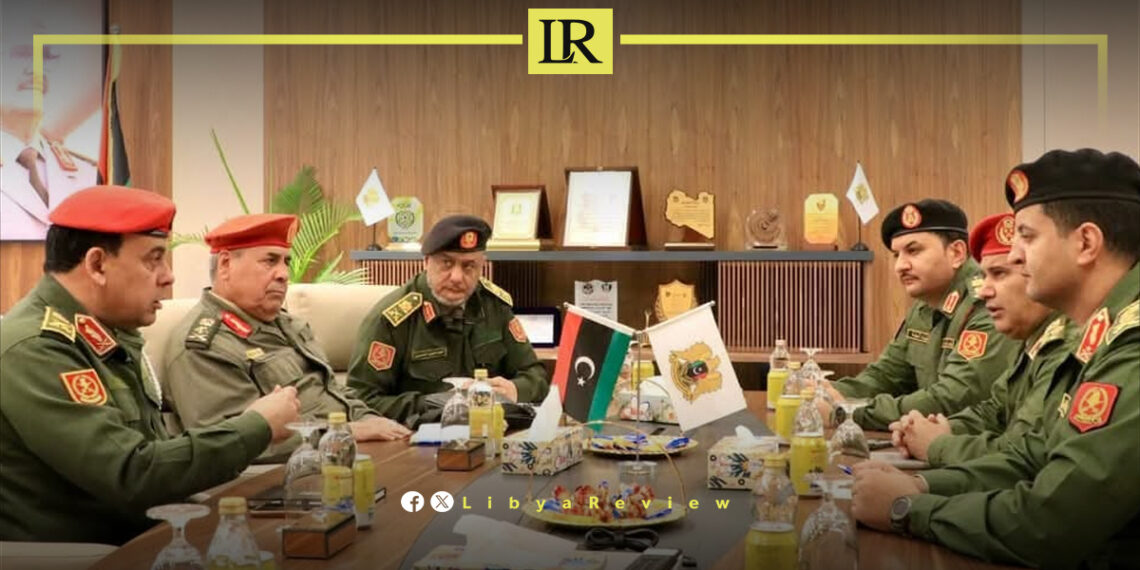On Thursday, the Libyan National Army (LNA) initiated a formal investigation into allegations of torture and abuse at Gernada Prison following reports and videos that surfaced on social media. These allegations have sparked widespread concern, prompting the LNA to take swift action to address the situation and ensure accountability.
A high-level meeting was held at the General Command headquarters in Benghazi to discuss the matter. Senior officials in attendance included Lieutenant General Khairi Al-Tamimi, General Secretary of the General Command; Lieutenant General Khaled Haftar, Chief of Staff of Security Units; Lieutenant General Saddam Haftar, Chief of Staff of Ground Forces; Lieutenant General Faraj Al-Sousaa, Military Prosecutor General; Major General Fawzi Al-Mansouri, Director of Military Intelligence; and Major General Najeeb Al-Balt, Director of Military Police and Prisons.
The Military Prosecutor General announced the formation of a dedicated investigative committee, which has already begun its work. He emphasized that there will be no tolerance for those found guilty of misconduct, assuring that individuals responsible for any violations will face full accountability under the law.
The allegations against Gernada Prison have generated significant public outrage, driven by reports of inhumane treatment of detainees, including acts of torture.
aThe formation of the investigative committee is viewed as a critical step toward restoring trust and ensuring justice in a deeply divided and unstable country.
The situation also has broader implications for Libya’s future. As the nation works toward potential elections and a unified government, issues of governance, the rule of law, and human rights remain central to its progress. The LNA’s response to these allegations will likely shape public perception of its role in fostering stability and justice.
The international community will be closely monitoring the investigation, as Libya’s human rights record remains a key factor in its diplomatic relations and broader efforts toward stabilization. A transparent and decisive approach by the LNA could set an important precedent for addressing systemic issues in the country’s detention system.


